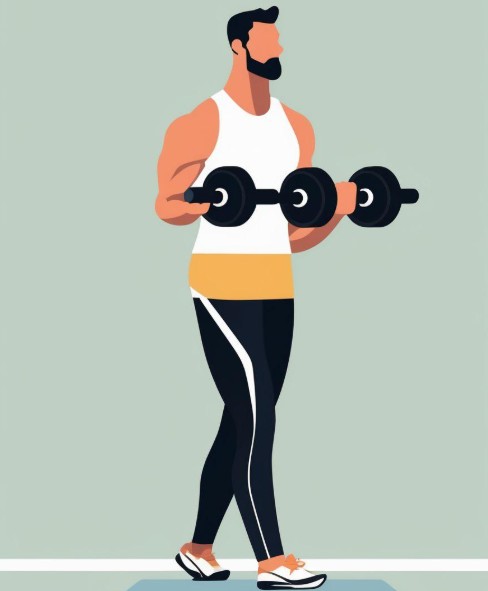The Benefits of Including Massage in Your Post-Workout Routine
The Benefits of Including Massage in Your Post-Workout Routine
There’s something incredibly satisfying about completing a workout.
The rush of endorphins brings an exhilarating sense of accomplishment, but the real challenge often arises afterward. The body sometimes fights back with soreness, stiffness, and fatigue. This is where integrating massage into your post-workout routine can make a significant difference.
Offering more than just relaxation, massage helps enhance recovery (more here), alleviate pain, and improve performance.
Promoting Muscle Recovery
One of the most compelling reasons to consider adding massage after workouts is its ability to promote muscle recovery. When you exercise, tiny tears occur in muscle fibers, which can lead to soreness. Therapeutic massage helps reduce muscle tension and encourages blood flow. This improved circulation brings critical nutrients to the muscles while flushing out lactic acid and other toxins that accumulate during exercise.
According to a study published in the Journal of Athletic Training, athletes who received massage after intense workouts reported reduced muscle soreness and quicker recovery times compared to those who did not. Whether you need massage therapy in Chandler, AZ, Gap, PA, or anywhere else, seeking professional treatment can significantly enhance recovery rates. Massages targeting specific muscle groups can alleviate post-exercise soreness and enhance flexibility, allowing athletes to get back to their training sooner.
Enhancing Flexibility and Range of Motion
Flexibility is important.
But especially for preventing injuries and improving performance in sports.
It requires a wide range of motion – such as gymnastics or dance. Regular massages can enhance flexibility by breaking down scar tissue and soothing tense muscles.
The gentle stretching and manipulation during a massage help open up the muscle fibers, allowing for a greater range of motion. Research conducted by the American College of Sports Medicine shows that athletes with greater flexibility experience fewer injuries when engaging in physical activities.
Incorporating massage into your routine prepares your body for physical exertion and helps maintain optimal functionality, which is beneficial for both professional athletes and fitness enthusiasts alike.
Therapists often customize their techniques – such as deep tissue or sports massage – to focus on the areas needing improvement to maximize flexibility.
Reducing Stress and Mental Fatigue
Engaging in intense physical activities can take a toll on your mental well-being.
- The psychological benefits of massage therapy are profound and should not be overlooked.
- Exercise releases endorphins that elevate mood, but a post-workout massage can extend that feeling of well-being.
- The calming benefits of massage release tension and promote relaxation throughout the body, leading to reduced stress levels.
- Studies indicate that massage promotes the production of serotonin, the feel-good hormone.
- This surge in positive hormones helps counteract the adverse effects of stress and leads to better mental clarity and focus.
Those who engage regularly in post-workout massage report improved mood and a sense of balance. As stress decreases, the body experiences improved recovery rates, meaning a happier athlete and improved performance.
Improving Sleep Quality
Sleep plays a critical role in physical recovery and health, yet many athletes struggle to achieve restorative rest. Massage can enhance sleep quality by promoting relaxation and reducing symptoms of anxiety. According to research published in the journal Physical Therapy, athletes receiving massage therapy reported better sleep patterns and less fatigue.
Massage encourages the production of melatonin and other sleep hormones, which aid in regulating sleep cycles. When combined with routine exercise, the benefits of massage can create a holistic approach to health that emphasizes physical and mental wellness.
A night of restorative sleep can lead to improved performance in subsequent workouts.
Further enhancing the positive cycle of physical activity and recovery.
Customizing Your Post-Workout Routine
Integrating massage into your post-workout plan should reflect your:
- Personal fitness goals
- Body type
- Age
- Specific needs
Tailoring your sessions based on the intensity of your workout and area focus can yield optimal results. If you’ve just completed a weightlifting session, a deep tissue massage may alleviate muscle tightness and soreness effectively.

If your workout consisted of high-intensity cardio, a lighter touch may be more beneficial in aiding muscle recovery.
Discussing your fitness routine and goals with a massage therapist can ensure that the treatment aligns with your broader health objectives. Customization of techniques, pressure points, and treatment duration can provide a highly effective recovery strategy, greatly improving your workout experience.
Striking a balance between training and recovery through massage can lead to better performance, reduced injury risk, and a more fulfilling fitness journey.

